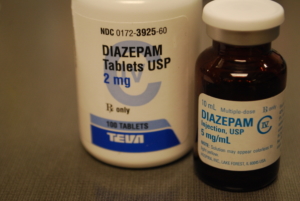
Tendon ruptures have happened up to several months after patients have finished taking their fluoroquinolone.
Tendon rupture can happen while you are taking or after you have finished taking ciprofloxacin. Talk to your healthcare provider about the risk of tendon rupture with continued use of ciprofloxacin. You may need a different antibiotic that is not a fluoroquinolone to treat your infection. The most common area of pain and swelling is the Achilles tendon at the back of your ankle. Avoid exercise and using the affected area. Call your healthcare provider right away at the first sign of tendon pain, swelling or inflammation. Stop taking ciprofloxacin until tendinitis or tendon rupture has been ruled out by your healthcare provider. tendon problems in the past, such as in people with rheumatoid arthritis (RA). Other reasons that can increase your risk of tendon problems can include: Tendon problems can happen in people who do not have the above risk factors when they take ciprofloxacin. have had a kidney, heart or lung transplant. The risk of getting tendon problems while you take ciprofloxacin is higher if you:. Pain, swelling, tears and inflammation of tendons including the back of the ankle (Achilles), shoulder, hand, or other tendon sites. Tendons are tough cords of tissue that connect muscles to bones. Tendon problems can happen in people of all ages who take ciprofloxacin. Tendon rupture or swelling of the tendon (tendinitis) Talk with your healthcare provider about whether you should continue to take ciprofloxacin.ġ. Ciprofloxacin can cause side effects that may be serious or even cause death. If you get any of the following serious side effects, get medical help right away. Keep a list of your medicines and show it to your doctor and pharmacist when you get a new medicine.Ĭiprofloxacin belongs to a class of antibiotics called fluoroquinolones. an antacid, multivitamin, or other product that has magnesium, calcium, aluminum, iron, or zincĪsk your doctor or pharmacist if you are not sure if any of your medicines are listed above. 
Take ciprofloxacin either 2 hours before or 6 hours after taking these products: cyclosporine (Gengraf, Neoral, Sandimmune, Sangcya)Ĭertain medicines may keep ciprofloxacin from working correctly.lidocaine (Xylocaine intravenous infusion).Corticosteroids taken by mouth or by injection may increase the chance of tendon injury. a medicine to control your heart rate or rhythm (antiarrhythmics).phenytoin (Fosphenytoin Sodium, Cerebyx, Dilantin-125, Dilantin, Extended Phenytoin Sodium, Prompt Phenytoin Sodium, Phenytek).glyburide (Micronase, Glynase, Diabeta, Glucovance).theophylline (such as Theo-24, Elixophyllin, Theochron, Uniphyl, Theolair).You should not take ciprofloxacin if you are already taking tizanidine. a blood thinner (such as warfarin, Coumadin, Jantoven).Taking an NSAID while you take ciprofloxacin or other fluoroquinolones may increase your risk of central nervous system effects and seizures. Many common medicines for pain relief are NSAIDs. an NSAID (Non-Steroidal Anti-Inflammatory Drug).

Ciprofloxacin and other medicines can affect each other causing side effects. Tell your doctor about all the medicines you take, including prescription and non-prescription medicines, vitamins and herbal and dietary supplements.






 0 kommentar(er)
0 kommentar(er)
